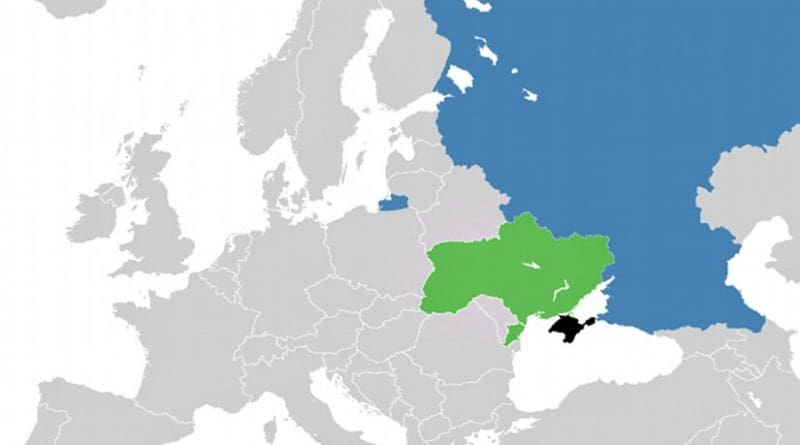Crimea Highlights Lack A Modern National Self-Consciousness Among Most Russians – OpEd
By Paul Goble
There is at the present time little or no feeling among Russians in Russia of solidarity with the supposedly “liberated” Russian residents of Crimea, Yevgeny Ikhlov says, an indication that “the non-Europeanized segment of Russians has almost no national self-consciousness in the contemporary meaning of that term.”
A modern nation, the Moscow commentator says, is a group of people who feel that they owe it to other members of the group who are suffering to come to their aid not out of some sense of universal charity but rather as a result of a feeling of “direct moral and political duty” (kasparov.ru/material.php?id=578B1900C65F4).
An imperial community, in contrast, Ikhlov continues, “treats population losses among compatriots as a sacrifice in the same of the empire and citizens as building material for the power of the state.” Indeed, and in contrast to modern nations, such sacrifices “only add a sense of sacredness to the personalized state.”
The borders of “’the Russian world’” are thus not the borders within which Russians live but rather where “the cult of Stalin” exists, he argues. At present, two groups of “civilized Russians” besides those who identify directly with the victims of the Soviet dictator deny that Stalin was a destroyer of the people.
These are first “the liberal Westerners who are also mentally imperialists but of a European type and who therefore clearly distinction the nation of the metropolitan area with ‘natives abroad’” and second, “Russian ‘white’ nationalists who see in Bolshevism and Stalnism an ideology which destroyed the historical Russia.”
“Imperial ‘a-nationalism’” has drawbacks, however. “It is undoubtedly glad for any territorial additions but it is organically incapable of including the newly acquired population into the Big Family of the Nation,” Ikhlov says. Instead, it views such populations as fundamentally different.
“Each addition of the latest Younger Brother legitimizes the power of the Older Brother and conversely the reduction of the state to the limits of the area in which the Older Brother lives undermines his right to rule over the state in principle.” That is why the union with Belarus and the recognition of Abkhazia are so important for such people.
After all, Ikhlov notes, “a sovereign without vassals is not a feudal lord but simply a vulgar landowner.”
Because of such views, “almost everyone in Russia was glad that their country got a new seacoast and wine growing resort area, especially given that it was Russian speaking and that it also got a city base.” What they did not see Crimea as was as making up for “the demographic losses” Russia has suffered over the last 25 years by adding new Russians to a Russian nation.
According to Ikhlov, “there was no feeling in Russia of solidarity with the ‘liberated’ Crimeans but there is constantly growing tension between the residents of this new province of the empire and those who go there on vacation for whom [the residents of Crimea] are above all else ‘unhappy natives.’” Such feelings are even more in evidence about the Donbass.
Ikhlov says that in his own mid, he has been “comparing the reaction of Russians to events in Crimea and the Donbass with the hypothetical reaction of Israelis to the fate of a large city in the south of Lebanon which historically [and completely hypothetically] had been populated by Jews.”
Let us imagine, he suggests, that in the 16th century, the Ottoman Empire allowed Sefardic Jews expelled from Spain to settle in Thessalonica, and let us call this imagined community “the Tyre Sector.” If Islamist radicals were then to take power in Beirut and threaten this community, imagine what would be the reaction of the Israelis to that.
“Under these conditions, the Israeli army would have driven a land corridor to ‘the Tyre Sector’ and then simply declared it to be part of Israel.” But “in present-day Russia, there is nothing even remotely approximately this variant of concern” about those Moscow says are fellow Russians.
And that shows that “Russians of Russia do not have any feeling of national solidarity with millions of Russians in Crimea and the Donbass which today are in territories firmly controlled by the Russian army. At the same time,” Ikhlov says, “the cult of Stalin is only strengthening” as a result of what is happening there.


The same anti-Russian garbage from Garbage Man himself. The anti-Commie mental circuits have now fossilized.